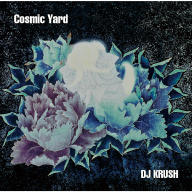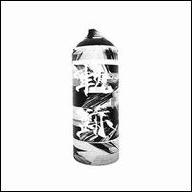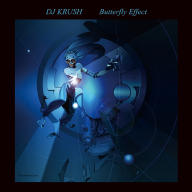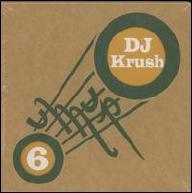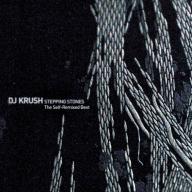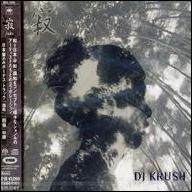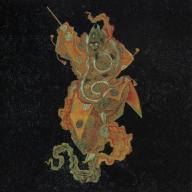Beginning as a bedroom DJ in the mid-'80s following the Japanese leg of the Wild Style tour, Krush moved into mobile DJ'ing, backing up rappers, and eventually solo production. Although his 1994 debut, Krush (initially released only in Japan), freely mixed elements of R&B and acid jazz with the beefy breakbeat backbone of midtempo hip-hop, Krush's work has since tended more toward the abstract, applying heavy effects and sample manipulation to thick, smart breaks, layered, almost ambient textures, and subtle, inventive scratching.
Following Krush and Bad Brothers (a 1994 collaborative EP with acid jazz artist Ronny Jordan), Krush came to larger acclaim in the mid-'90s through his association with the London-based Mo'Wax label, which released his Strictly Turntablized in 1994 and Meiso in 1995, both reissued stateside by AM. While Turntablized is closer to a collection of DJ tools, Meiso is a return of sorts to his earlier work, including rappers such as Guru and CL Smooth on a few tracks and incorporating a wider variety of instrumental sounds and atmospheres. The album also included the jaw-dropping nine-minute epic "Duality," which helped bring greater recognition to its guest artist, a young Californian by the name of DJ Shadow. Krush's profile in the jazz world was increased with the 1996 album Ki-Oku, a collaboration with avant-garde trumpeter Toshinori Kondo. He also contributed a 60-minute mix of the Ninja Tune back catalog to Cold Krush Cuts, a 1996 release with Coldcut and DJ Food. A mix retrospective called Holonic: The Self-Megamix appeared in 1997.
In addition to 1996's Milight, which included guest appearances by Mos Def and DJ Cam, Krush also featured on a number of various-artists collections, including Mo'Wax's celebrated Headz, as well as Altered Beats and Axiom Dub (both out on Bill Laswell's Axiom label). In 1998, Krush formed a trio called RYU with fellow Japanese hip-hop artists DJ Hide and DJ Sak, and the group released the album GA in 1999. Kakusei appeared on Mo'Wax/Columbia that year, followed by the mix album Code 4109 and single "Tragicomic" the next year. Zen from 2001 was filled with guest MCs and singers ranging from El-P and Mr. Len to Zap Mama and N'Dea Davenport, while The Message at the Depth from 2002 featured fewer vocalists (including Anti-Pop Consortium as well as the unrelated collective Anticon) and more instrumentals. Jaku (featuring guest MCs Mr. Lif and Aesop Rock) landed in 2004, and two years later the Stepping Stones collection featured Krush remixing highlights from his back catalog. The album was released as a double-CD collection with one disc focusing on "Lyricism" and the other on "Soundscapes," and both discs were released individually as well. A mix CD called OuMuPo 6 also appeared in 2006, and a triple-DVD Krush retrospective was released in Japan in 2007.
Following these retrospective releases, Krush took a long break from releasing music. During this time, he scored a 2009 animated film called First Squad and took part in Bill Laswell's ongoing Method of Defiance project, performing with them at the Montreux Jazz Festival and appearing on their 2010 album, Incunabula. Krush celebrated the 20th anniversary of his solo career in 2011 with a commemorative concert in Tokyo. He also resumed his release schedule with a monthly series of digital singles issued by his own Es.U.Es Corporation. A few vinyl EPs containing tracks from the series were released in 2012. Krush continued working with Laswell, appearing on MoD's 2013 album Nahariama, and both individuals released a collaborative single, "Shuen," in 2014. Butterfly Effect, Krush's first proper solo album in over a decade, finally appeared in October of 2015. Two years later, on the 25th anniversary of his solo career, Krush issued Kiseki, a straightforward rap album featuring Japanese MCs like Rino Latina II, OMSB, 5lack, and more. The instrumental full-length Cosmic Yard followed in 2018. ~ Sean Cooper, Rovi


